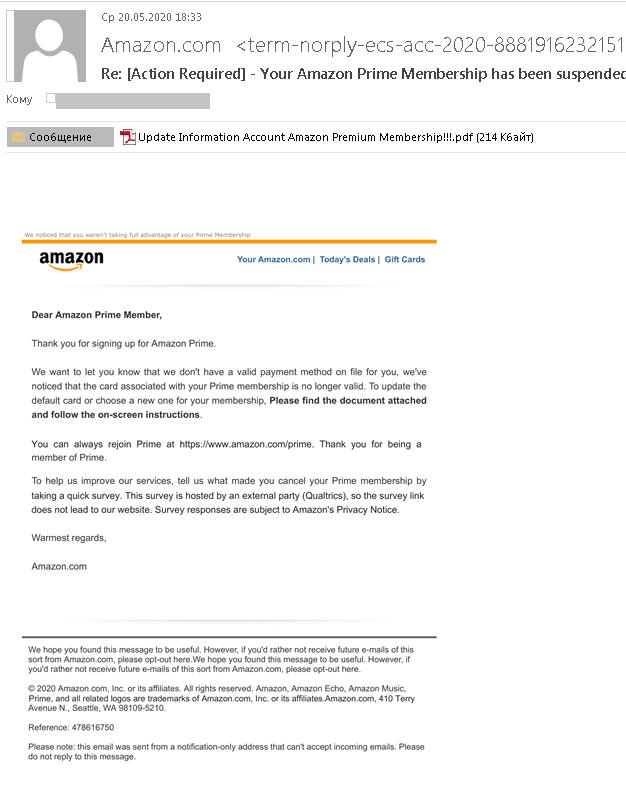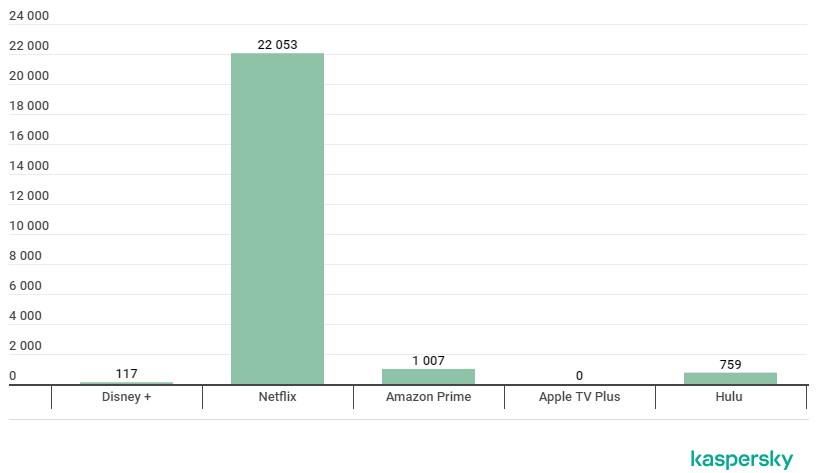
Malware for Popular Streaming Platforms Is Rampaging
- Threat actors are targeting popular shows and streaming platforms to spread trojans.
- In many cases, the lures are used for phishing purposes, stealing credentials and billing details.
- Users should only use unique and strong passwords, and ignore all email messages making bold claims.
Kaspersky takes a look at the threat landscape that is set up around the five most popular streaming platforms out there, namely Netflix, Hulu, Amazon Prime Video, Disney+, and Apple TV Plus. The anti-virus company has rich data in its hands to understand what goes on in the field, drawing insightful stats from both the mobile and the PC space.
All in all, the actors’ main goal seems to be to steal user credentials and take over streaming platform accounts, while they also like to grab people’s credit card and billing details.
Source: Kaspersky
Users run the above risks when they try to access streaming platforms from different or unofficial sources. Things like buttons implemented in email messages, chats, or forum posts, serve as channels of direction to phishing pages. There, the visitors will not only add their credentials, but they are usually also asked to “update” their payment details.
Source: Kaspersky
In many cases, these websites are also dropping malware payloads to their visitors’ systems, with Netflix being by far the most abused platform, followed by Amazon Prime and Hulu.
These payloads are presented as streaming apps, but they’re either malware in disguise set to run in the background (trojan, backdoor), or just pure unmasked malware (usually adware).
Source: Kaspersky
Interestingly, each streaming platform has its own champion country regarding the number of threats that target each region. For example, Hulu has the Dominican Republic, Amazon Prime has the United States, Netflix has Germany, and Disney+ has Algeria.
As for the most targeted shows used as lures to distribute malware or lead users to phishing sites, the top place goes to “The Mandalorian” from Disney+, while Netflix’s “Stranger Things” and “The Witcher” come right after. In 74% of the cases that concern these series, the threats are trojans.
Source: Kaspersky
It is clear that cybercriminals are actively targeting streaming platform users, so there are several things you can do to ensure that you don’t fall for their traps.
Related: Game of Thrones Torrents Extensively Used for Malware Distribution
First, only visit streaming platforms via the official website. Secondly, ignore all incoming emails that claim to come from a platform you have an account with, no matter how legitimate it looks or what “special subscription offers” they promote. Thirdly, do not ever download streaming apps form anywhere else than the official website. Finally, always pick a unique and strong password to secure your accounts on streaming platforms.














